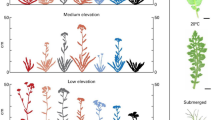Abstract
Is there a unifying principle in biology that can be deciphered from the structures of all the present day genomes? Can one hope to determine the general structure and organization of cellular information as well as elucidate the underlying evolutionary dynamics, by systematically exploring various statistical characteristics of the genomic and proteomic data at many levels? A large-scale software and hardware system, Valis, developed by NYU bioinformatics group, aims to do just that. We analyze word-frequency and domain family size distributions across various genomes, and the distribution of the potential “hot-spots” for segmental duplications in the human genome. We hypothesize and test, by computational analysis, that such a pattern is the result of a generic dominating evolution mechanism, ”evolution by duplication”, originally suggested by Susumu Ohno. We examine what implications these duplications may have in determining the translocations of male-biased genes from sex chromosomes, genome structure of sex chromosomes, copy-number fluctuations (amplifications of oncogenes and homozygous or homozygous deletions of tumor suppressor genes) in cancer genomes, etc. We examine, through our explorations with Valis, how important a role information technology is likely to play in elucidating biology at all levels.
Access this chapter
Tax calculation will be finalised at checkout
Purchases are for personal use only
Similar content being viewed by others
Author information
Authors and Affiliations
Editor information
Editors and Affiliations
Rights and permissions
Copyright information
© 2003 Springer-Verlag Berlin Heidelberg
About this paper
Cite this paper
Mishra, B. (2003). Life’s Duplicities: Sex, Death, and Valis. In: Pinkston, T.M., Prasanna, V.K. (eds) High Performance Computing - HiPC 2003. HiPC 2003. Lecture Notes in Computer Science, vol 2913. Springer, Berlin, Heidelberg. https://doi.org/10.1007/978-3-540-24596-4_1
Download citation
DOI: https://doi.org/10.1007/978-3-540-24596-4_1
Publisher Name: Springer, Berlin, Heidelberg
Print ISBN: 978-3-540-20626-2
Online ISBN: 978-3-540-24596-4
eBook Packages: Springer Book Archive




